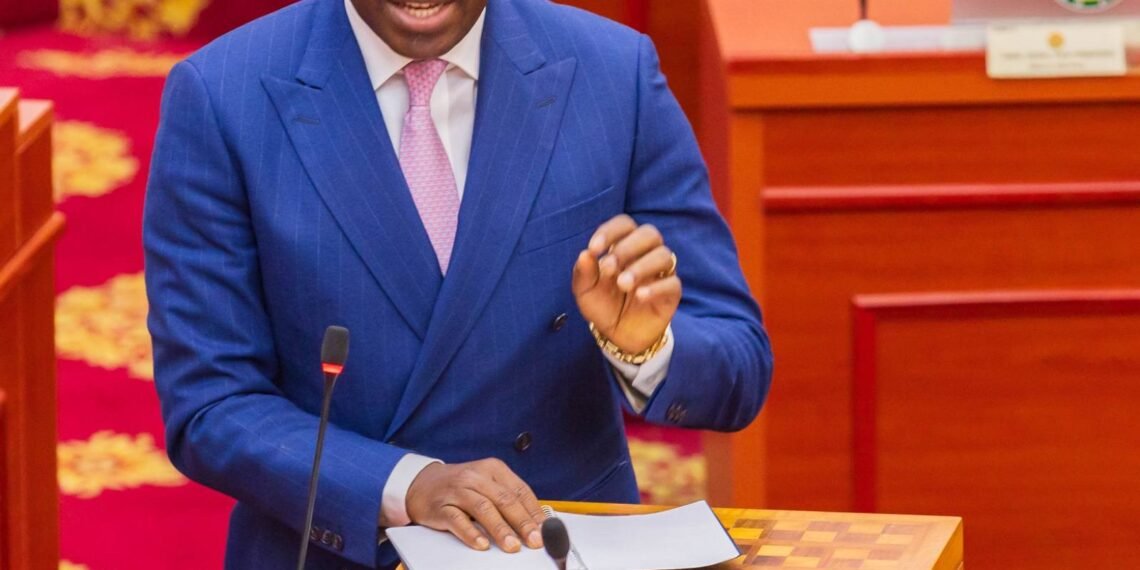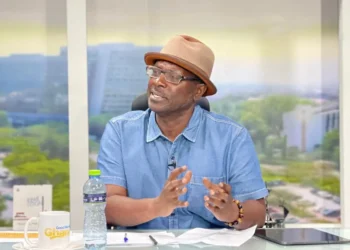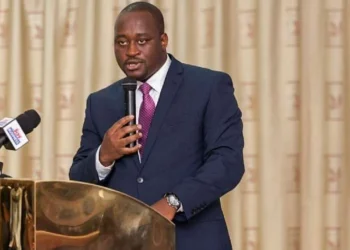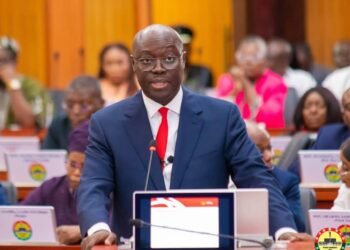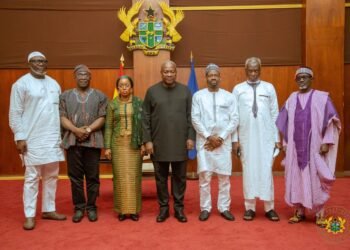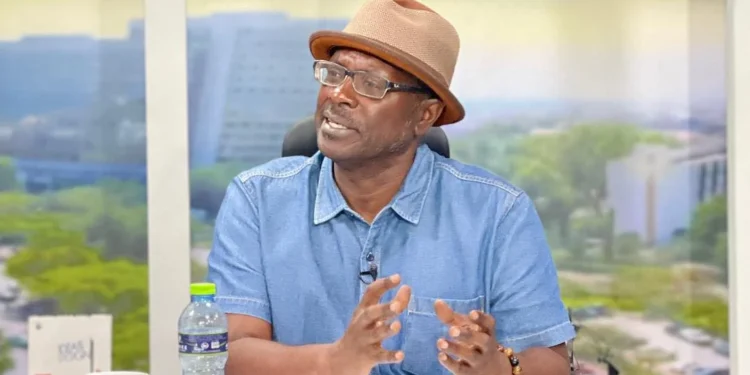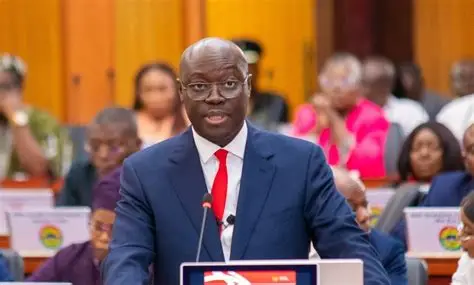Minority Leader and Member of Parliament for Effutu, Hon. Alexander Kwamena Afenyo-Markin, has thrown his support behind two of the government’s flagship initiatives—the 24-Hour Economy and the Big Push infrastructure program—describing them as policies with the potential to transform Ghana’s economy and create sustainable opportunities for the youth.
In a rare show of bipartisanship, Hon. Afenyo-Markin emphasized that good policies must transcend political divisions. Speaking on the government’s rollout of its Reset Agenda, he noted that his role as an opposition leader should not prevent him from backing initiatives that have clear benefits for the country.
“In respect of the 24-hour economy policy, I must embrace it because if it works, it will work for the youth of Ghana. The fact that I am in opposition doesn’t mean I should poo-poo it”.
Hon. Alexander Kwamena Afenyo-Markin
He explained that, having studied the policy framework, he believes it could deliver meaningful results if implemented effectively. “I have seen the policy document. I pray the government will be able to roll it out for the benefit of the private sector so that more jobs will be created.”
The 24-Hour Economy is part of the government’s ambitious Reset Agenda led by President John Dramani Mahama. It represents a national production-led transformation programme aimed at moving Ghana from an import-dependent, low-value raw material exporting economy to a modern, self-reliant, and globally competitive economy.

Designed to work around the clock, the initiative seeks to boost productivity, ensure sustainable growth, and create jobs while guaranteeing food security for all. For the Effutu legislator, its success lies in its ability to address the unemployment crisis and unlock private sector dynamism.
By encouraging industries to operate beyond traditional working hours, the 24-Hour Economy is expected to expand production capacity, create diverse forms of employment, and enhance Ghana’s competitiveness in the global marketplace.
Big Push Infrastructure Drive
The Minority Leader also welcomed the government’s Big Push infrastructure drive, describing roads as a crucial link to opportunity for young people.
“For the youth, the roads mean access to opportunity. I am therefore happy that this government has introduced this big push idea, where major roads are going to be tackled. If this is done, it will further open our economy and make Ghana a better place”.
Hon. Alexander Kwamena Afenyo-Markin
The Big Push represents a US$10 billion investment in accelerated infrastructure development across the country. It prioritizes the construction of massive roads, completion of uncompleted and abandoned government projects in sectors such as health, education, roads, energy, and water supply.
The programme also aims to create thousands of jobs while addressing longstanding infrastructure deficits that have slowed Ghana’s economic growth.
The Effutu MP expressed optimism that the initiative, if rolled out effectively, could ease access to markets, improve mobility, and stimulate economic activity nationwide.

“It is my hope that the government is able to roll this out for the good of our country,” he said, adding that investments in road networks and other infrastructure will help open Ghana’s economy to new opportunities.
The Minority Leader’s remarks underscore a growing recognition within political circles that Ghana’s developmental challenges demand collaborative solutions rather than entrenched partisanship.
Refreshing Shift in Political Rhetoric
His stance represents a refreshing shift in political rhetoric, signaling a willingness to support progressive policies regardless of the side of the aisle from which they emerge.
By openly endorsing the Reset Agenda’s twin pillars—the 24-Hour Economy and the Big Push— the Minority Leader is aligning with calls from civil society, industry leaders, and ordinary Ghanaians who have long advocated for bold reforms to address the country’s structural economic weaknesses.
Ghana’s heavy reliance on commodity exports and imports has left it vulnerable to external shocks, making transformation imperative. The Reset Agenda, according to government officials, is designed not only to stabilize the economy but to reposition Ghana as a competitive player in the global economy.
The 24-Hour Economy seeks to harness the energy of Ghana’s youthful population while providing a framework for industrial expansion. The Big Push, meanwhile, is expected to provide the infrastructural backbone necessary for this transformation to take root.
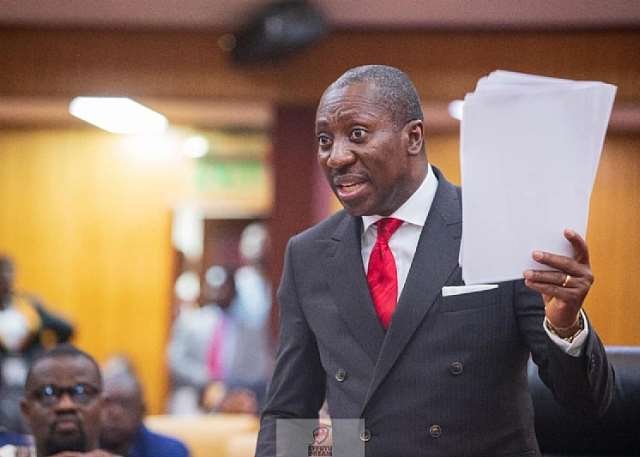
While praising the vision, Hon. Afenyo-Markin also stressed the importance of effective implementation. He acknowledged that many well-intentioned policies in Ghana’s history have faltered due to weak execution, corruption, or lack of continuity.
His comments, therefore, serve both as an endorsement and a reminder of the responsibility on the government to ensure that these initiatives deliver their promised benefits.
Bipartisan support for such initiatives could strengthen their sustainability, reducing the risk of policy reversals that often follow political transitions. By pledging support, the Minority Leader has opened the door for greater parliamentary collaboration on the Reset Agenda.
The Effutu lawmaker’s backing is also politically significant. As the Minority Leader, his endorsement could encourage other opposition lawmakers to adopt a more constructive approach toward national development programmes.
This could, in turn, foster a more inclusive and cooperative political environment, which many Ghanaians believe is essential for addressing the country’s deep-rooted economic challenges.
The real test will be in its delivery. If the 24-Hour Economy can indeed stimulate job creation and the Big Push succeeds in upgrading infrastructure, Ghana could be on the path to a more inclusive and resilient future.
READ ALSO: Bank of Ghana Cuts Policy Rate to 21.5% as Inflation Outlook Improves

